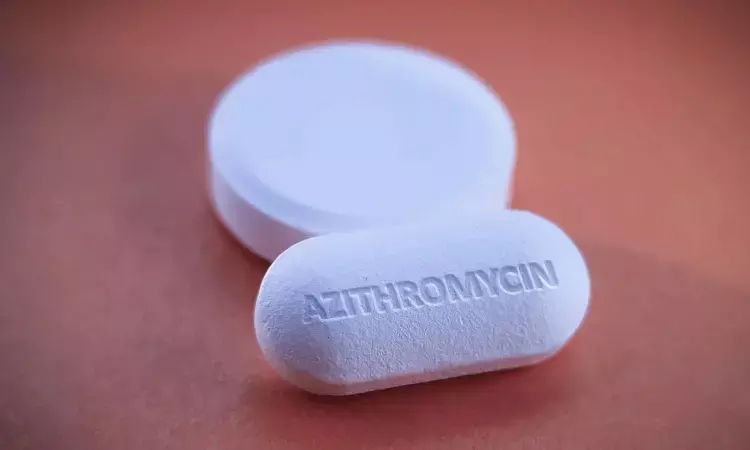- Home
- Medical news & Guidelines
- Anesthesiology
- Cardiology and CTVS
- Critical Care
- Dentistry
- Dermatology
- Diabetes and Endocrinology
- ENT
- Gastroenterology
- Medicine
- Nephrology
- Neurology
- Obstretics-Gynaecology
- Oncology
- Ophthalmology
- Orthopaedics
- Pediatrics-Neonatology
- Psychiatry
- Pulmonology
- Radiology
- Surgery
- Urology
- Laboratory Medicine
- Diet
- Nursing
- Paramedical
- Physiotherapy
- Health news
- Fact Check
- Bone Health Fact Check
- Brain Health Fact Check
- Cancer Related Fact Check
- Child Care Fact Check
- Dental and oral health fact check
- Diabetes and metabolic health fact check
- Diet and Nutrition Fact Check
- Eye and ENT Care Fact Check
- Fitness fact check
- Gut health fact check
- Heart health fact check
- Kidney health fact check
- Medical education fact check
- Men's health fact check
- Respiratory fact check
- Skin and hair care fact check
- Vaccine and Immunization fact check
- Women's health fact check
- AYUSH
- State News
- Andaman and Nicobar Islands
- Andhra Pradesh
- Arunachal Pradesh
- Assam
- Bihar
- Chandigarh
- Chattisgarh
- Dadra and Nagar Haveli
- Daman and Diu
- Delhi
- Goa
- Gujarat
- Haryana
- Himachal Pradesh
- Jammu & Kashmir
- Jharkhand
- Karnataka
- Kerala
- Ladakh
- Lakshadweep
- Madhya Pradesh
- Maharashtra
- Manipur
- Meghalaya
- Mizoram
- Nagaland
- Odisha
- Puducherry
- Punjab
- Rajasthan
- Sikkim
- Tamil Nadu
- Telangana
- Tripura
- Uttar Pradesh
- Uttrakhand
- West Bengal
- Medical Education
- Industry
Azithromycin drugmakers to add adverse reaction AGEP in the package insert: CDSCO Panel

New Delhi: The Subject Expert Committee (SEC) functional under the Central Drugs Standard Control Organization (CDSCO) has recommended that CDSCO may request the State Drugs Controllers to direct the manufacturers of Azithromycin to incorporate drug associated Acute Generalized Exanthematous Pustulosis (AGEP) in the package insert of the drug.
This came in line with the recommendation of the signal review panel, Pharmacovigilance Programme of India (PvPI), and the Indian Pharmacopoeia Commission (IPC), which was placed before the committee.
Acute generalised exanthematous pustulosis (AGEP), also known as pustular drug eruption and toxic pustuloderma, is a rare skin reaction caused by drug administration in 90% of cases. AGEP is characterised by rapid skin eruptions that begin five days after taking medicine.
Azithromycin is a broad-spectrum macrolide antibiotic, primarily used for the treatment of respiratory, enteric, and genitourinary infections, and may be used instead of other macrolides for some sexually transmitted and enteric infections. It is structurally related to erythromycin.
Azithromycin acts by binding to the 23S rRNA of the bacterial 50S ribosomal subunit. It stops bacterial protein synthesis by inhibiting the transpeptidation/translocation step of protein synthesis and by inhibiting the assembly of the 50S ribosomal subunit. This results in the control of various bacterial infections. The strong affinity of macrolides, including azithromycin, for bacterial ribosomes, is consistent with their broadspectrum antibacterial activities.
Despite the lack of high-quality evidence, azithromycin has been rapidly adopted as a repurposed medicine for the treatment of COVID-19. Interfering with receptor-mediated binding, viral lysosomal escape, intracellular cell-signaling pathways, and increasing type I and III interferon expression are thought to be the mechanisms behind its antiviral activities. Its immunomodulatory properties may help to reduce inflammation and promote tissue healing.
Popular brands of Azithromycin include Cipla's Azipro 500 Mg Tablet, Zomycine 500 Mg Tablet, Azimax 500 Mg Tablet, Azipro 500 Mg Injection, Sun Pharma's Azax 500 Mg Tablet, Glenmark's Azifine-500 Tab, and Cadila Pharma's Azivista 500 Mg Tablet.
At a recent SEC meeting for antimicrobial and antivirals, the recommendation of the signal review panel, PVPI, IPC, was placed before the committee regarding the adverse reaction related to Azithromycin.
In view of the above, after detailed deliberation, the committee recommended,
"CDSCO may request State Drugs Controllers to direct the manufacturers of the drug to incorporate drug associated Acute Generalized Exanthematous Pustulosis (AGEP) in the package insert of the drug."


